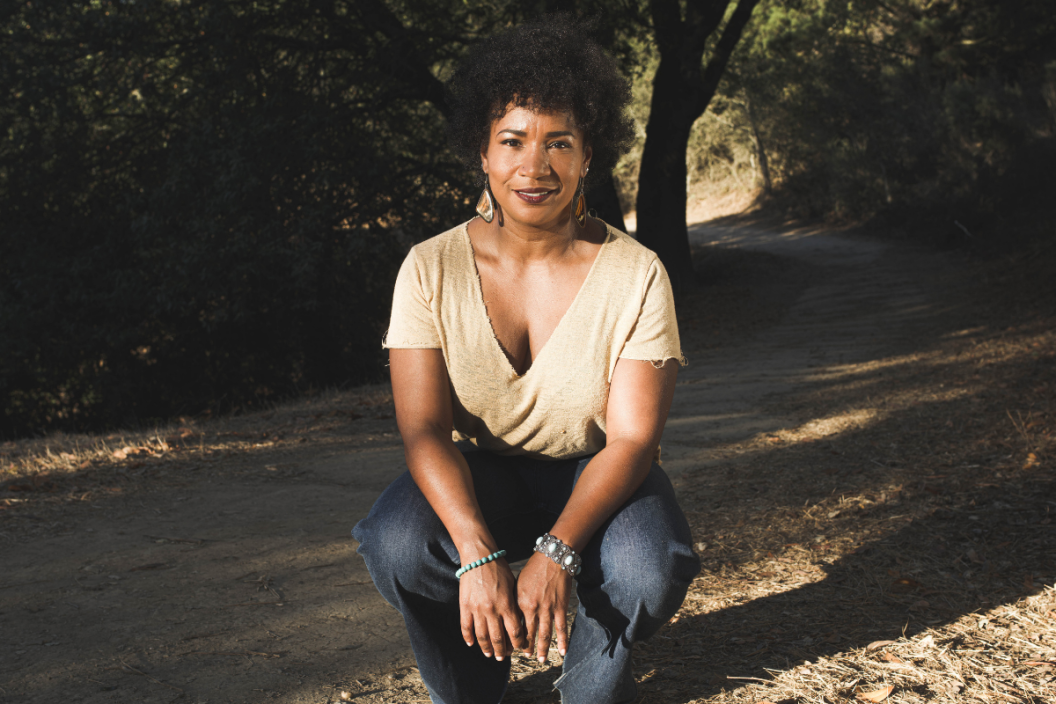In the early aughts, Miko Marks was tirelessly working toward country music stardom. She released two acclaimed albums -- 2005's Freeway Bound and 2007's It Feels Good, received praise from national press outlets and played countless gigs, including Music City's popular CMA Fest.
Videos by Wide Open Country
But despite her immense talent, ambition, radio-friendly anthems and heartfelt ballads about home and family, such as the stirring "Mama" (along with a video that featured her college friend Erykah Badu), Marks was told she "wouldn't sell."
"In trying to pursue the gates of Nashville, I discovered that they were high fences made of stone," Marks told the Nashville Scene in 2020.
Marks' story is, unfortunately, a familiar one. For years, Black country artists, from the trailblazing Linda Martell (the first African American woman to perform on the Grand Ole Opry) to Rissi Palmer, have faced industry roadblocks that their white counterparts haven't had to endure.
Marks eventually left Nashville for California, but she never stopped writing and performing. Through appearances throughout the Bay Area, she became one of the most recognized country artists in the region.
Last year, as protests against racial injustice were held across the nation, artists such as Marks, Our Native Daughters member Rhiannon Giddens, Grammy-nominated Mickey Guyton and Palmer, whose Color Me Country radio show spotlights Black and indigenous artists, continued to shine a light on systemic racism in the country music industry.
In the midst of these ongoing conversations, Marks began recording her first full-length album in over 10 years, Our Country (out March 26), a timely collection of socially conscious songs about the Flint water crisis ("We Are Here"), injustice ("Ancestors"), a prayer for healing ("Mercy") and more.
Below, Marks tells Wide Open Country about the inspiration behind Our Country, writing her truth and how Black country artists are blazing new trails for one another.
Wide Open Country: I love the name of your album, Our Country. What inspired the title?
Miko Marks: Our Country, as in country music, is also Black Music. Our Country, as in America, also belongs to BIPOC folks. The title was also inspired by the division we are grappling with as a nation. We are not operating in a way that is inclusive, compassionate and understanding of each other. We thought it was important to emphasize that this country belongs to all of us. "Our Country" as in the music on this album may not fit the standard conception of contemporary country music, but the musical elements represented are all a part of what made country music country music when it was taking shape with blues, gospel, rock n roll, etc.
WOC: You've said your song "We Are Here" was written about your hometown of Flint, Michigan. How did Flint shape you as an artist?
MM: Early on, my family migrated from Mississippi for jobs in the automotive industry when Flint was a hub of the industry. We carried all of our history and traditions with us and country music was deeply rooted and included. Flint is a huge part of who I am. While growing up there, I was exposed to several genres of music (gospel, R&B, Country) and even had some experience with Classical music. Flint is the bedrock of my artistry. To see my city being forgotten and the crisis of unclean water not being addressed weighs heavy on me so I wanted to write a song that highlighted the voices of the people.
WOC: Can you talk about the experience of writing "Ancestors" and what inspired it?
MM: "Ancestors" was written line by line and was inspired by the events that unfolded in 2020 and continue to unfold to this day. I was raised to know that those who have gone on before me have the ability to impart wisdom and guidance if I am open. So, for me it was a call and a cry out for the power of our ancestors.
WOC: Our Country is your first album in over a decade. How have you seen the industry change since the release of your last album? Has technology (streaming, social media, podcasts, etc.) created new avenues for independent artists in your experience?
MM: Country radio is a huge part of the industry. I acknowledge its strength in breaking new artists. However, I do feel that with social media, podcasts, streaming, etc., artists like myself are no longer unseen but given an opportunity to thrive with these platforms. I have found more new artists and music by way of technology and can say that it has widened my view. I've learned of so many new artists in just the past year that I have fallen in love with: Willie Jones, Brittney Spencer, Reyna Roberts, New North.
Read More: New Study Shows Black Artists Are Underrepresented on Country Radio
WOC: You've spoken about the barriers you faced from the music industry in Nashville. Now that conversations about racism within the country music industry are being more widely discussed, do you see the industry changing for the better?
MM: The fact that there are conversations taking place is a sign of change. There has to be action within the antiquated system. Inclusion is key, not just as an artist but on the boards, in the front office, top positions at labels and within the touring segment as well. Systemic changes need to be made and I am hopeful.
WOC: In The New York Times roundtable, Rissi Palmer talked about getting flowers from you after she played the Opry for the first time. Can you talk about the importance of that camaraderie and having a support system from fellow artists?
MM: I did not know Rissi at the time and I was so very proud of her accomplishments as a Black woman in country music. I wanted to celebrate her moment because it was important to me that she knew the impact she had on a person she did not know. She did something that had not been done in many years and it reaffirmed to me that it was possible for me as well.
Now Watch: Tina Turner Began Her Solo Career as a Country Singer
https://rumble.com/embed/u7gve.vc767b/




